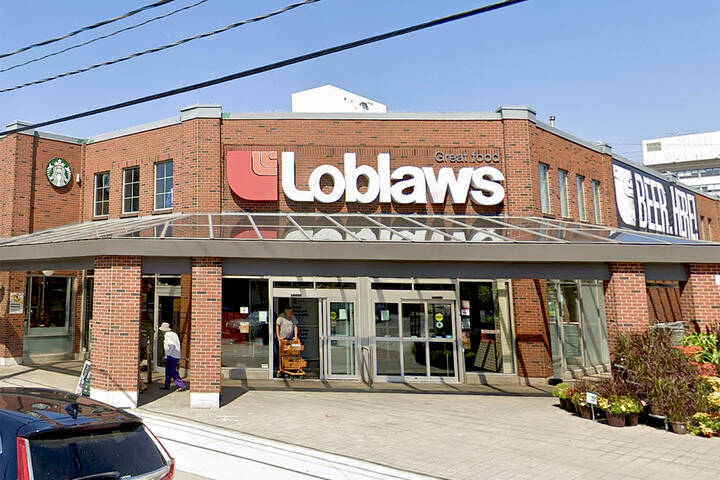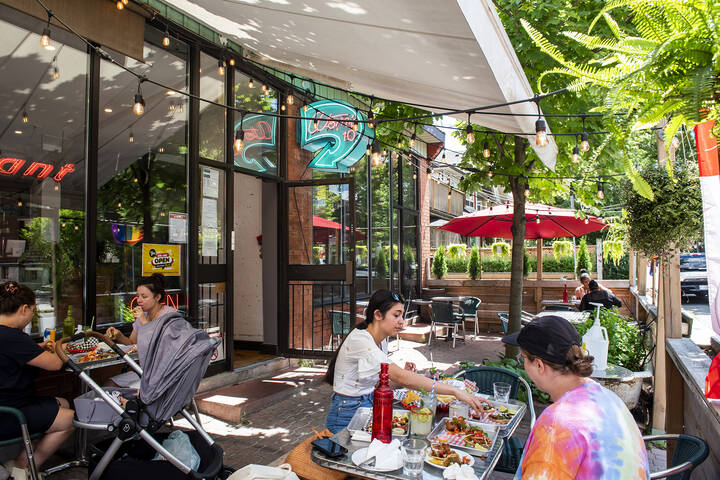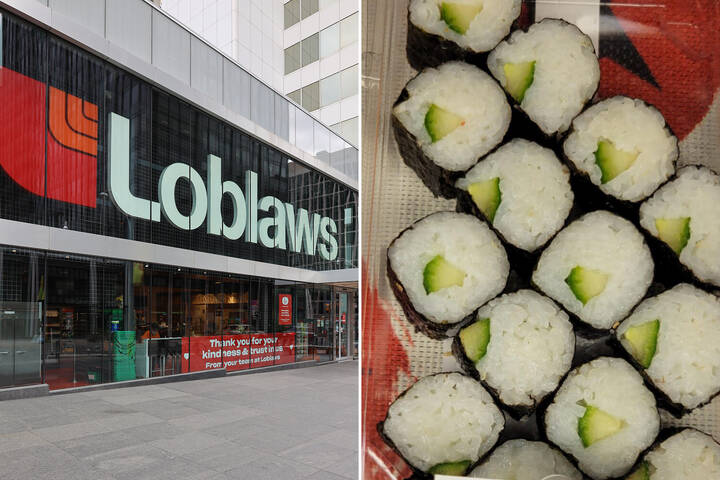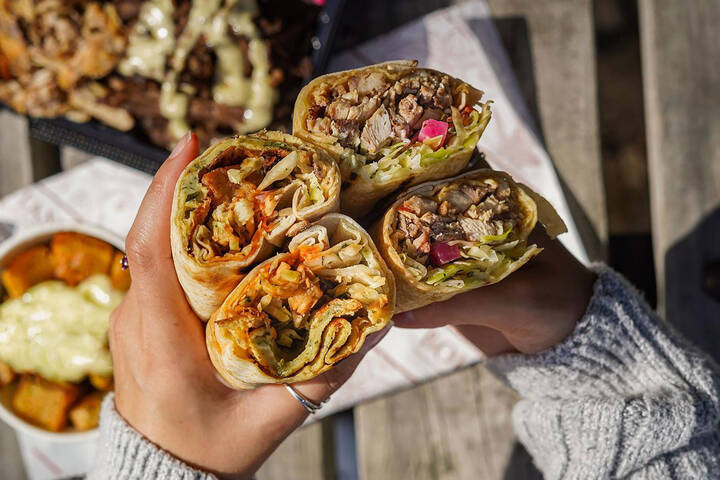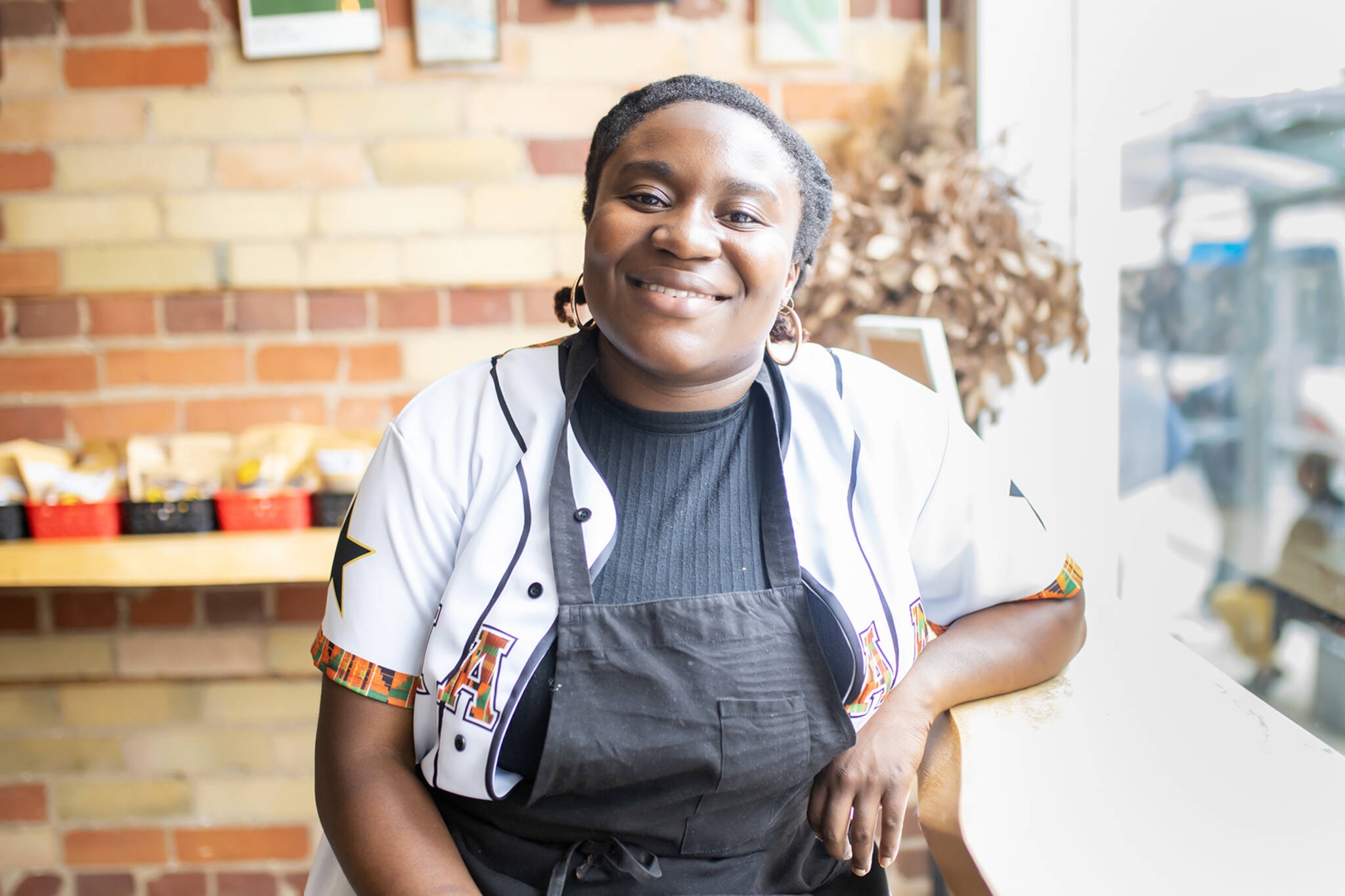
24-year-old in Toronto launches revolutionary travelling African restaurant
A game-changing travelling African restaurant launched by a 24-year-old in Toronto isn't just an expression of a vibrant culinary identity, it's also a non-profit created to help others with food insecurity.
"'Abibiman' means land where Black people originate. It is from Twi/Fante language of Ghana, where my family is from," The Abibiman Project founder Rachel Adjei tells blogTO.
"When deciding on a name, I wanted an African identifier. Through my research, I found that there wasn't exactly a word for Africa in many indigenous African languages. This was the closest I could get and it had a nice ring to it."
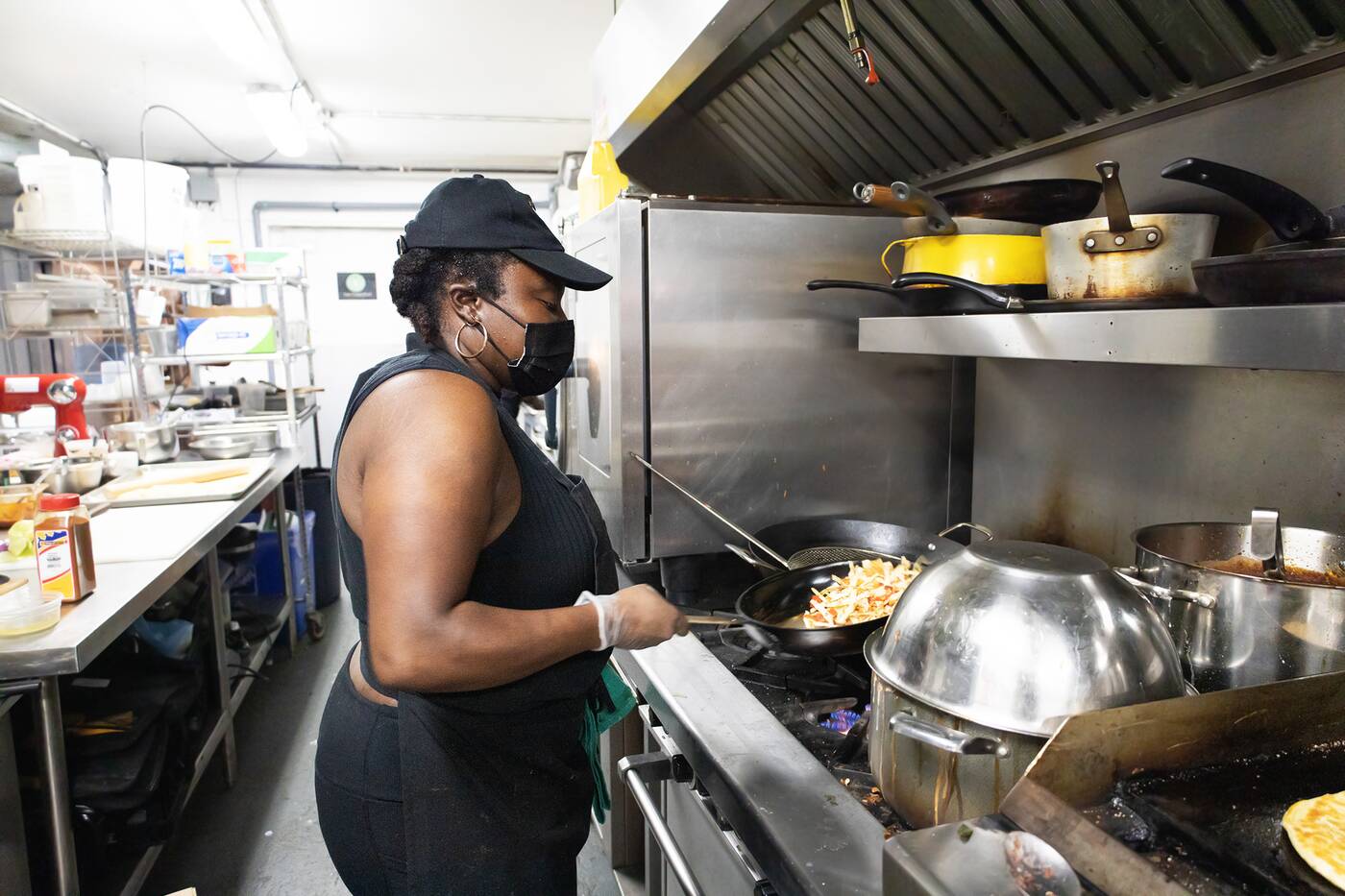 The Abibiman Project pop-up serves savoury and sweet foods inspired by Africa and young founder Rachel Adjei's heritage.
The Abibiman Project pop-up serves savoury and sweet foods inspired by Africa and young founder Rachel Adjei's heritage.
Adjei was raised in Rexdale by her Ghanaian mother, has a self-professed sweet tooth and has been working in the Toronto food scene for five years, attending George Brown's culinary and baking/pastry management programs while working full-time for three years.
She's specialized in east and southeast Asian, southern French and Mediterranean cuisines, as well as French pastry, but discovered a new explosion of passion when she began The Abibiman Project.
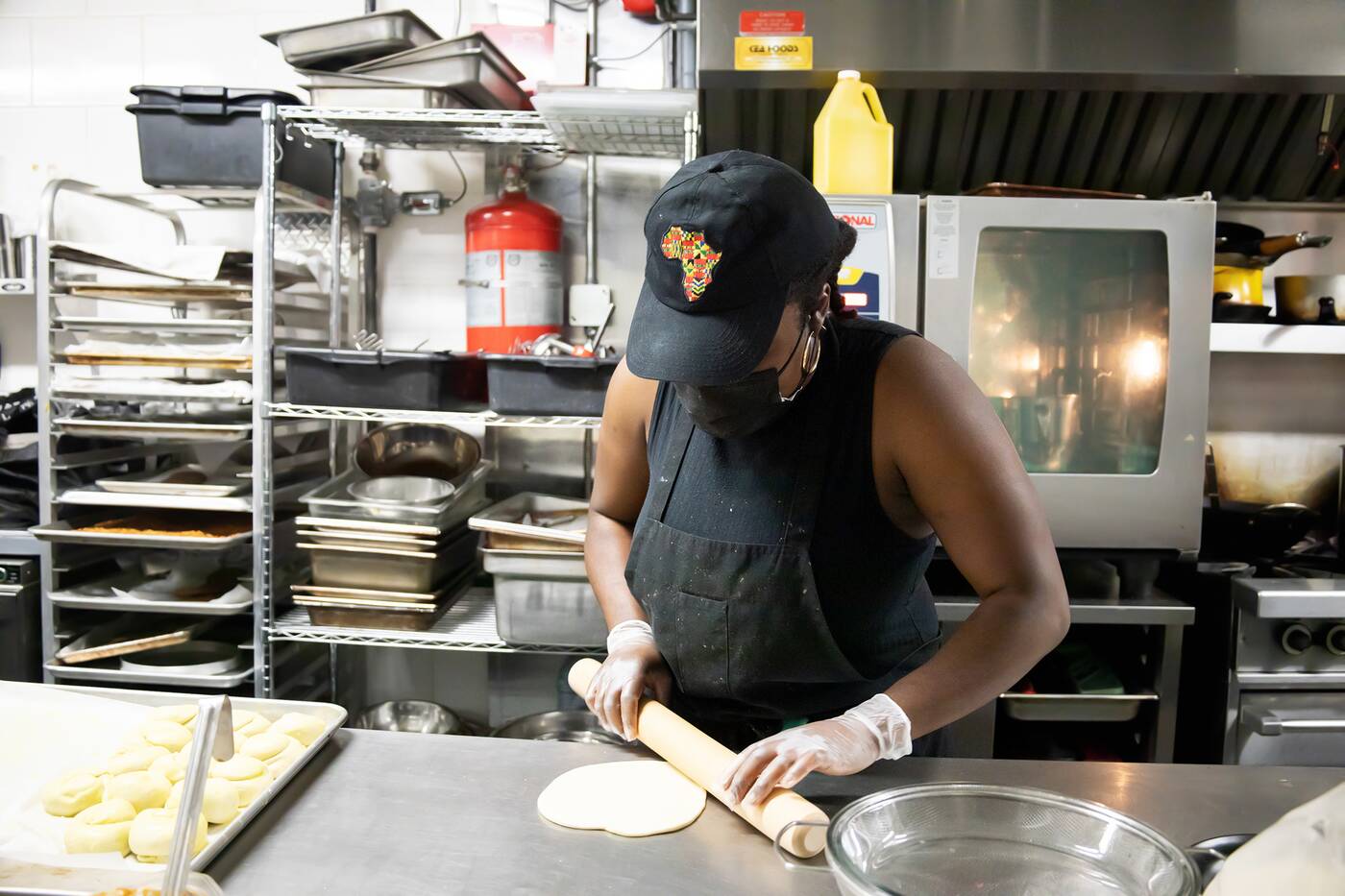 "Inspiration comes a lot from Ghanaian cuisine since my family is from Ghana. Overall I focus on the entire African continent. In general, people don't know anything about Africa let alone know how many different countries, regional cuisines or traditional ingredients are used from region to region," says Adjei.
"Inspiration comes a lot from Ghanaian cuisine since my family is from Ghana. Overall I focus on the entire African continent. In general, people don't know anything about Africa let alone know how many different countries, regional cuisines or traditional ingredients are used from region to region," says Adjei.
"I focus broadly on African foods to give a background and a way for people being introduced to the food to at least distinguish between north, east, south and west African food, the end goal being able to dive deeper into specific regions and their distinct food cultures."
The Abibiman Project was started in November 2020, after a summer of Adjei attending protests demanding Black voices be heard.
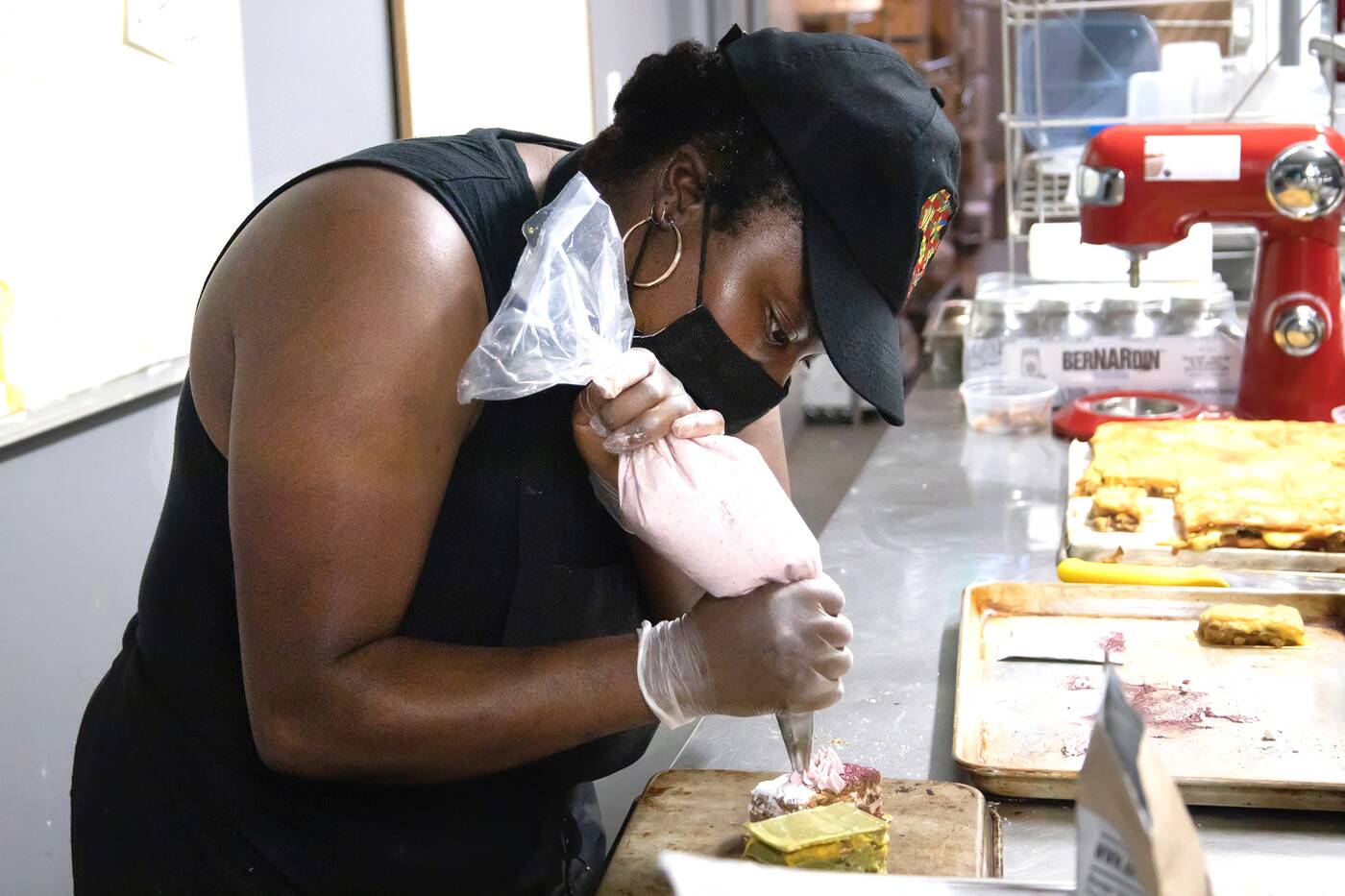
"I was moved and empowered by the strength and togetherness of the Black community to demanding for change, rightly so, in the middle of a pandemic," says Adjei.
"I'd always thought down the line in my career, I'd get to do food the way I wanted in a way that reflected my personal identity. As I connected with those Black voices, I realized that then was a better time than ever to make a difference with my culinary identity."
Profits from The Abibiman Project are donated to Afri-can Food Basket.
"They support Toronto's Black community through education on urban farming practices, offering programs for youth and giving the food insecure access to culturally appropriate foods," says Adjei.
"When I saw their Black Food Toronto program as a response to the pandemic, I had to get involved."
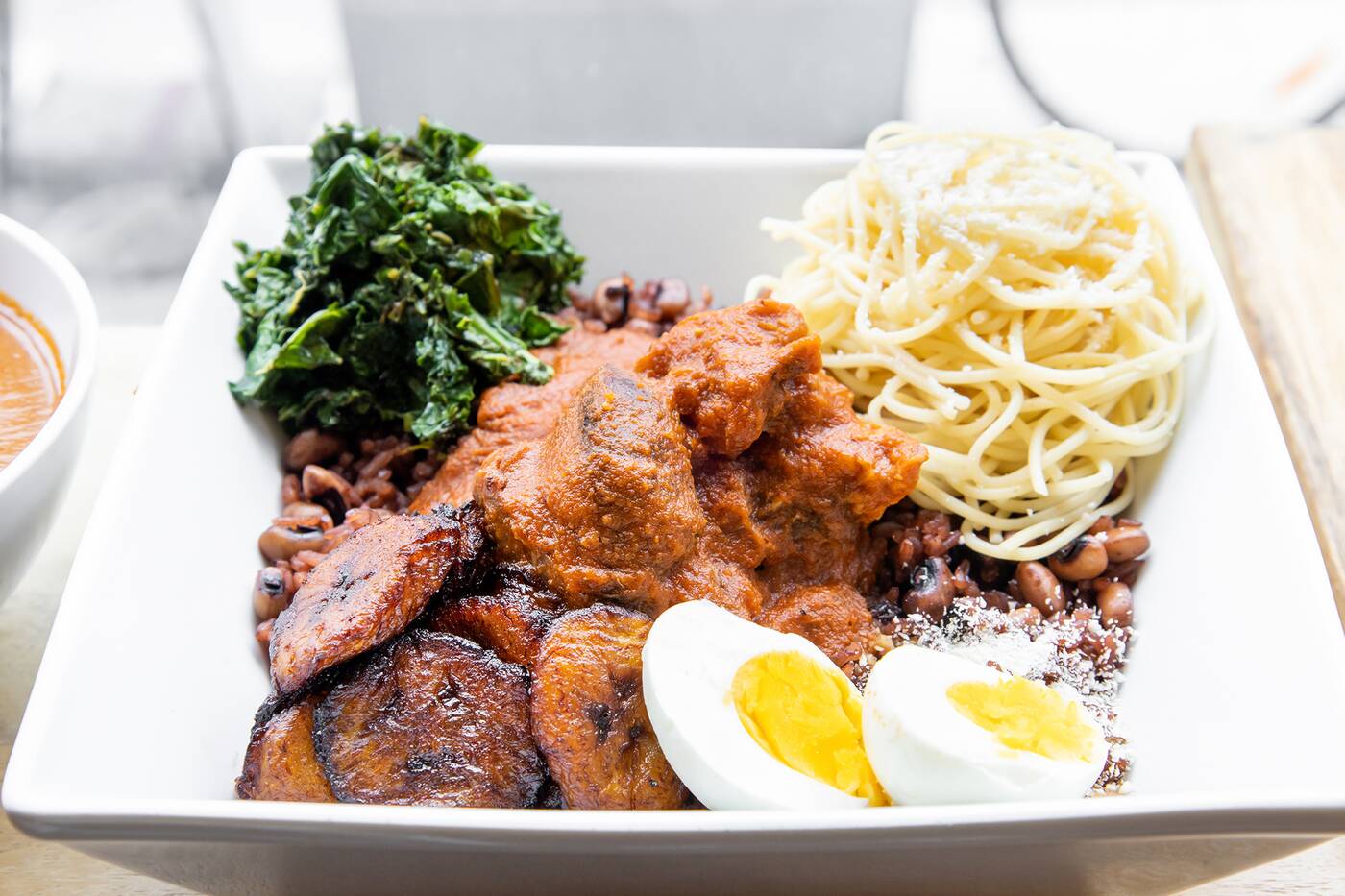
At Abibiman's most recent pop-up from Sept. 24 to 26 at Leaf + Bone, savoury dishes on offer included a peanut soup, a waakye rice bowl of sorghum leaf rice and black-eyed peas with tomato sauce and plantains, and a "rolex" East african omelette on chapati (flatbread), all ranging $8 to $18 in price.
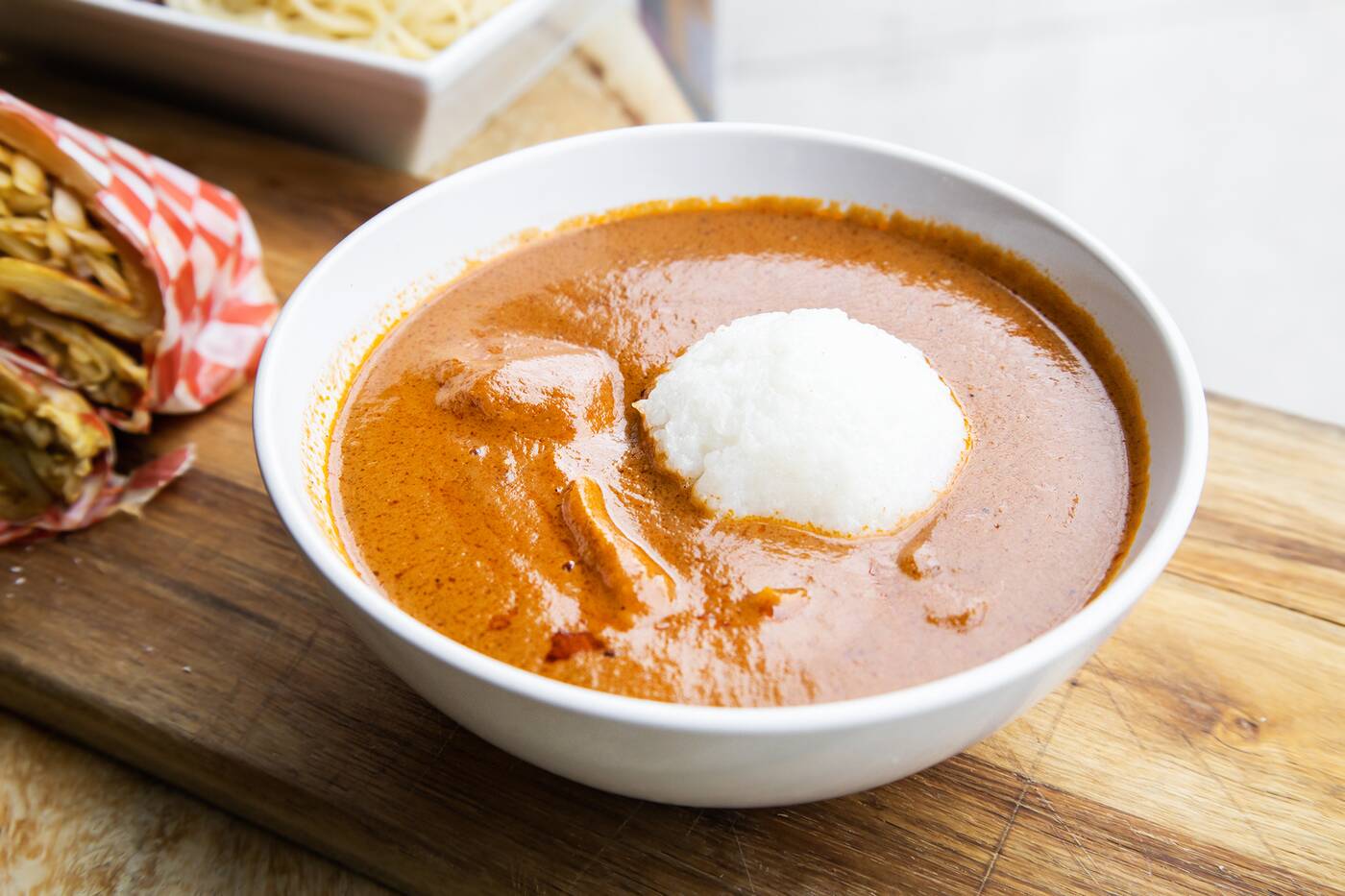
"I pull influence from traditional African recipes, indigenous African ingredients and the ingenuity of Black folks and their cuisines evolutions in Western metropolitan cities like Toronto," says Adjei.
"We offer an authentic taste of the African palate through our pop-up menus. Give customers the opportunity to explore flavours themselves with spices and flavour bases we make."

As for baked goods topping out at $3.25, there were orange hibiscus cookies, mbatata (sweet potato cookies), mandazi (coconut cardamom doughnuts), and salty chocolate cookies made with dawa dawa - a fermented African lotus bean Adjei describes as "essential in west African cuisines."
"It's packed with umami flavour and tastes like a maggi cube to me," says Adjei. "I find it pairs excellent with chocolates but I also use it in my red sauce, jollof rice and other traditional dishes."

Slightly more expensive pastries included a banana leaf steamed rice pudding, a bissap and coconut brown sugar dacquoise, and a sponge with caramelized moringa chocolate and Jamaican pumpkin curd.

"Traditionally desserts aren't popular in African food cultures, so doing sweets also gives me free reign to create sweets using my formal training and evolving delicious African ingredients," says Adjei.
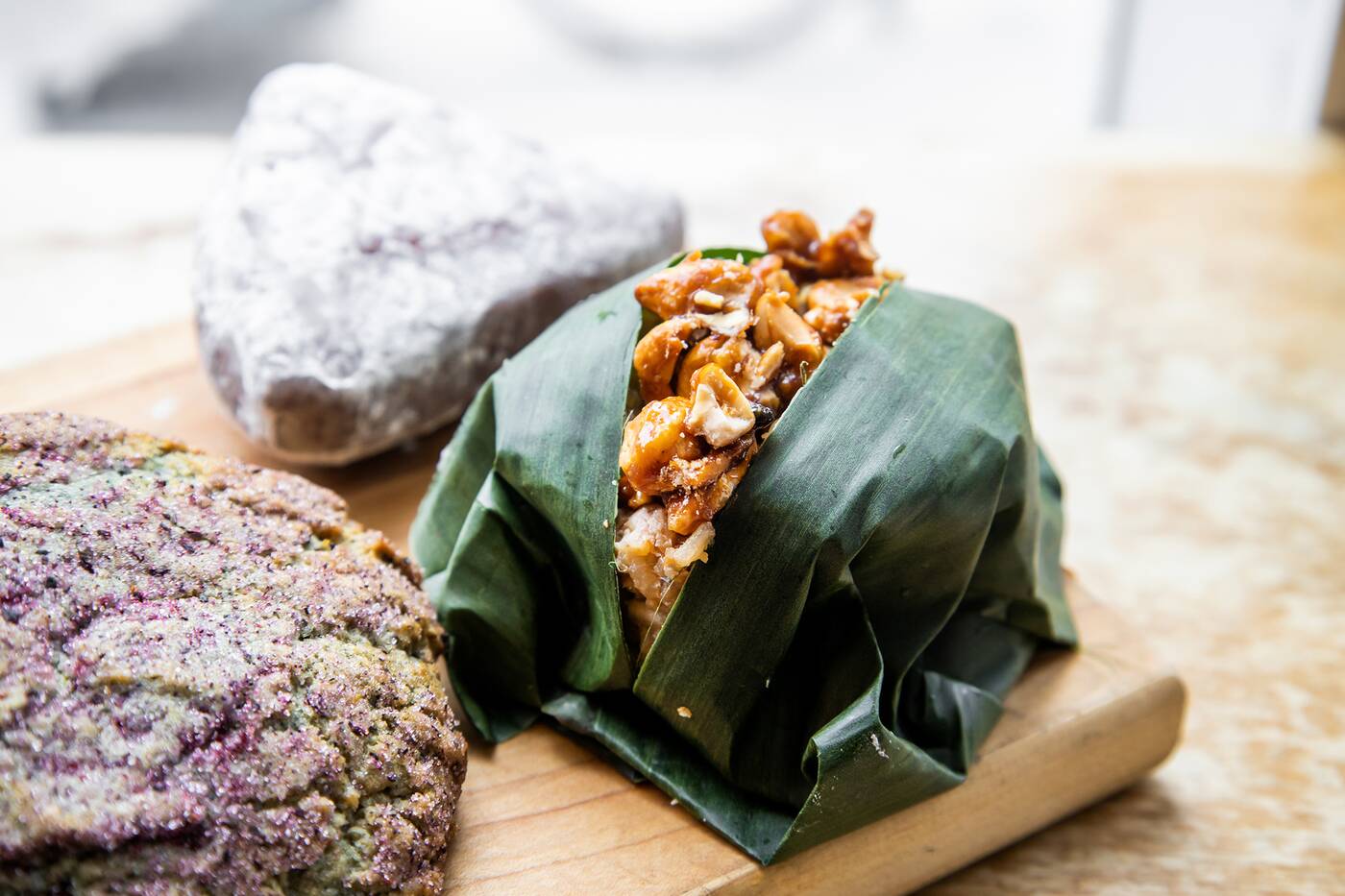
She even made an ice cream in the summer called "Kofi Brokeman" after a Ghanaian street food of roasted plantain and peanuts, which she interpreted as a roasted plantain ice cream with candied peanuts spiced with dried chili and fresh ginger.
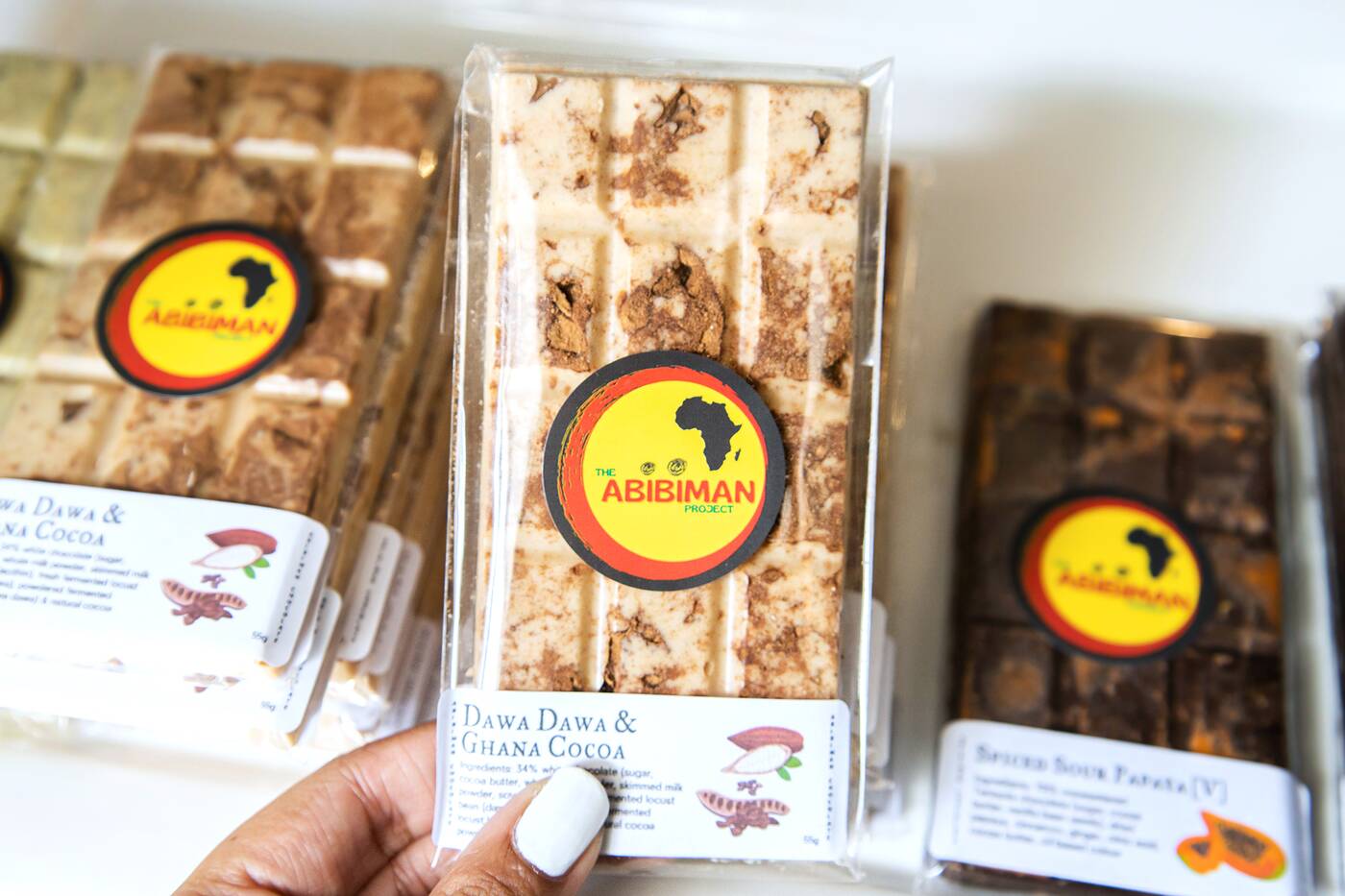
The project also makes lots of pantry products which are available at pop-ups and from an online shop, such as chocolates, red sauce, salts and spice blends.
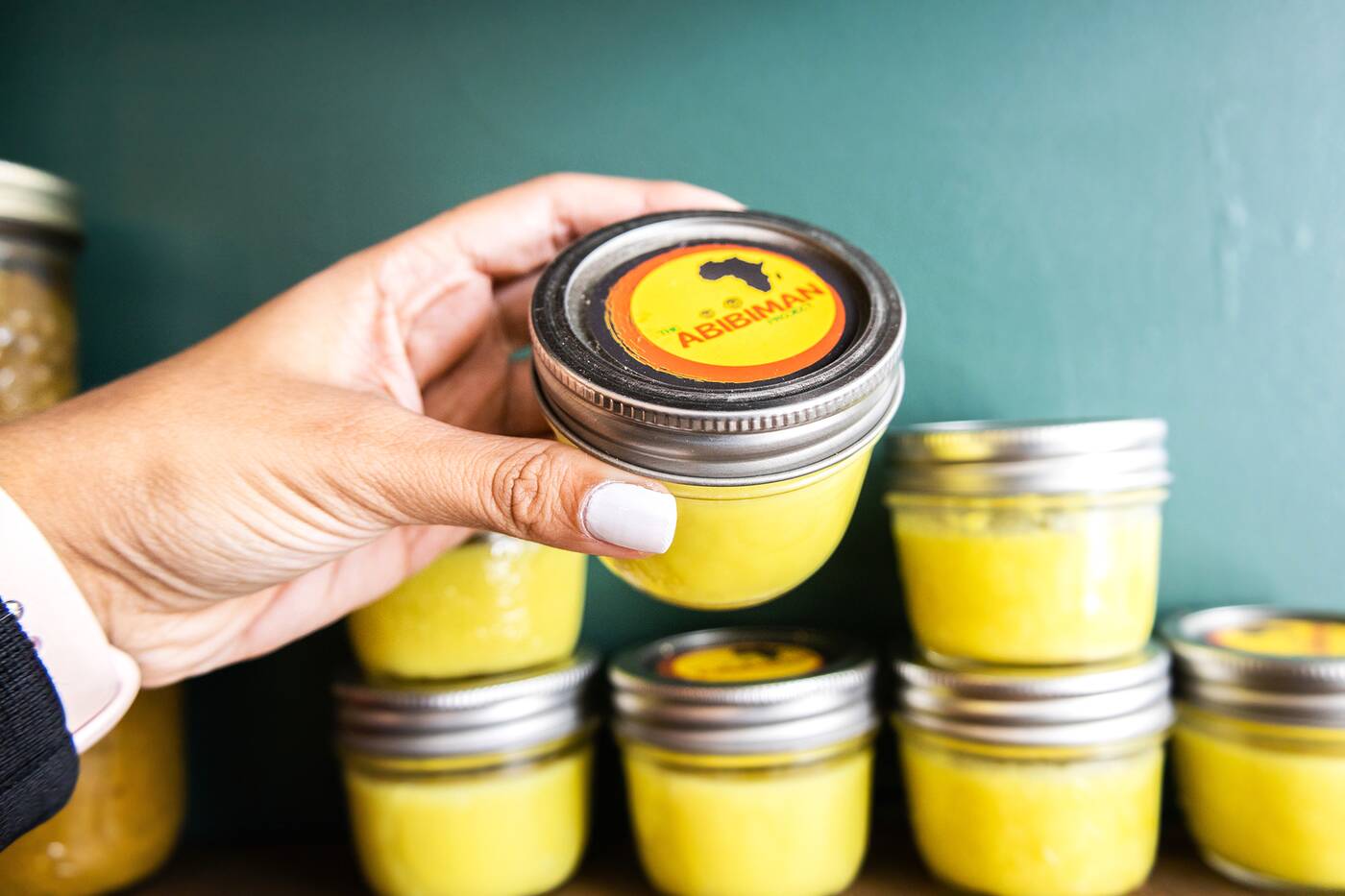 "The food takes cooking techniques I've used for years paired with ingredients and recipes made by my ancestors, giving the food heart and weight," says Adjei.
"The food takes cooking techniques I've used for years paired with ingredients and recipes made by my ancestors, giving the food heart and weight," says Adjei.
"It's a combination of new and old African cuisines utilizing local ingredients as well as imported traditional ingredients from the diaspora. The taste generally is layered in flavour with spices, from slow cooking and the appreciation of ingredients."
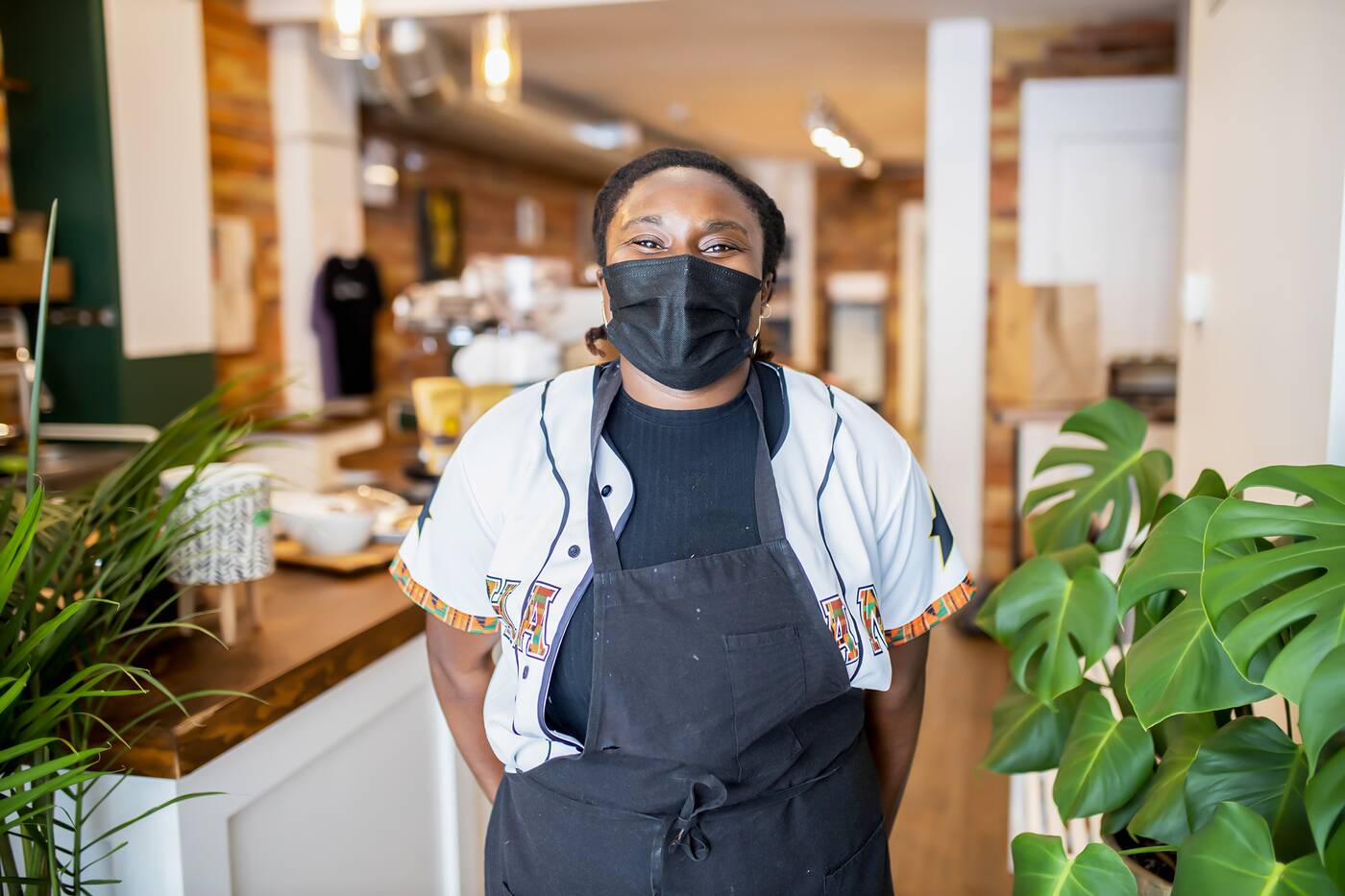 Currently she's operating all day-to-day aspects of The Abibiman Project by herself while still working four days a week at Butchers of Distinction, friends and family helping her out with things like rides and packing spices.
Currently she's operating all day-to-day aspects of The Abibiman Project by herself while still working four days a week at Butchers of Distinction, friends and family helping her out with things like rides and packing spices.
She takes pop-ups wherever the opportunity becomes available, fitting them into her schedule however she can.
"I hustle hard to make connections and build a community through this project so being in different parts of the city helps me reach other audiences," says Adjei.
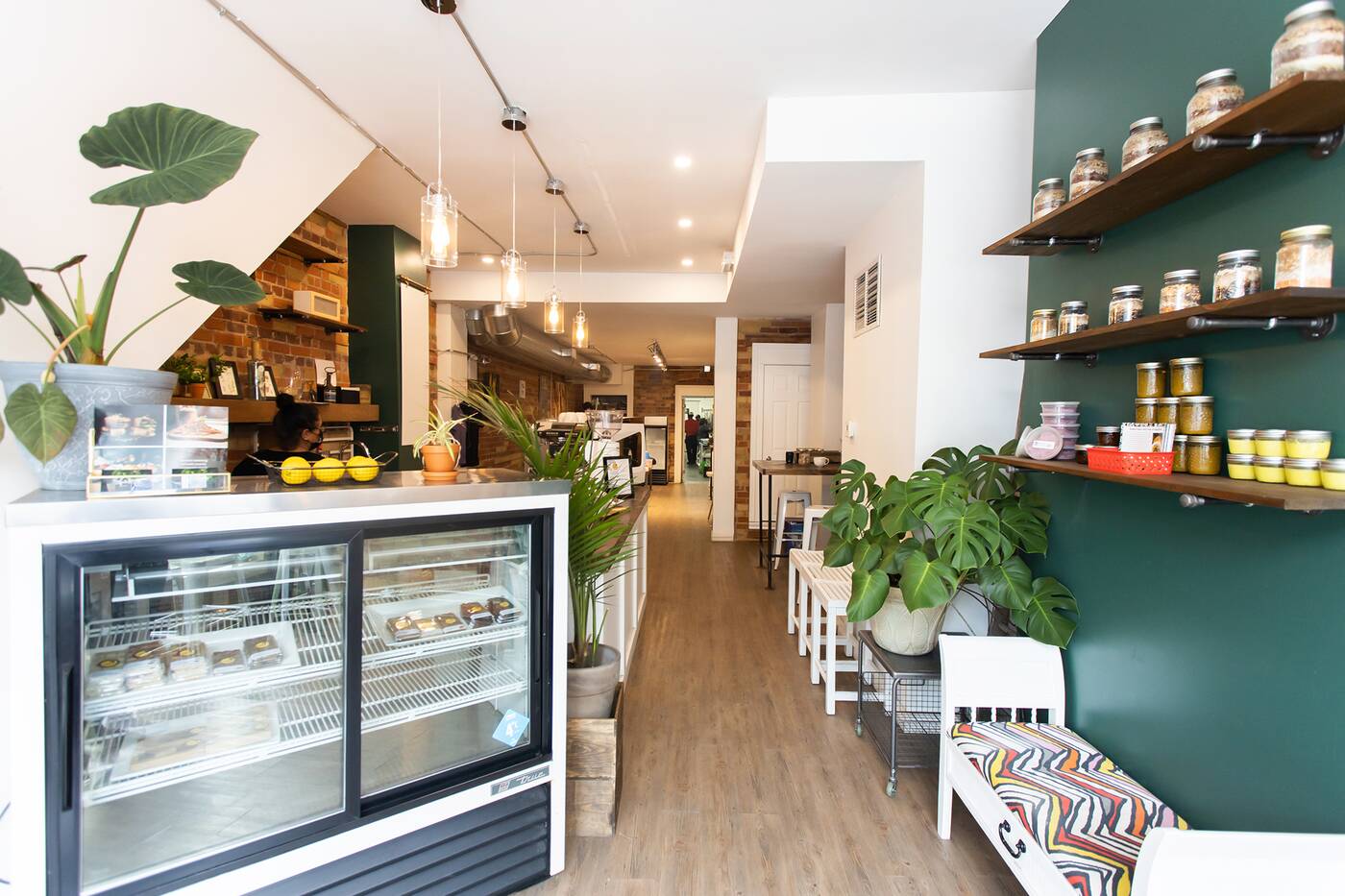 She's hoping to transition to operating The Abibiman Project full-time and actually paying herself, evolving the business into a social enterprise that will also help her to pay rent and hire staff so she doesn't have to rely on friends and family.
She's hoping to transition to operating The Abibiman Project full-time and actually paying herself, evolving the business into a social enterprise that will also help her to pay rent and hire staff so she doesn't have to rely on friends and family.
She also wants to start wholesaling her products like spices, do more special events and catering, and start teaching online classes on African cooking, culture, history and flavours.
It's possible she'll open a storefront or cafe "far down the road."
"I make what I think people will like, be shocked by or even dislike. It’s all about giving an experience and getting people more in tuned with the African palate," says Adjei.
"Food is so powerful. It is the great connector that ties people together. It can make a bad day better. It can spark memories of nostalgia. Without food, life is bland and no one should have to be without."
Fareen Karim
Latest Videos
Latest Videos
Join the conversation Load comments

